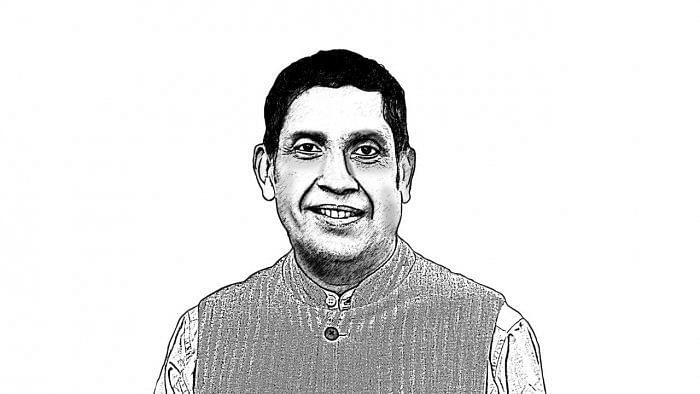
In the recent Karnataka elections, 43 per cent of voters voted for the Congress party, the highest for any party in more than three decades. Yet, the Karnataka election was free, but not fair. You may wonder why a Congress man is whining about unfair elections after having won such a big mandate. Because the outcome of an election does not determine whether it was fair or unfair. Reality does. When a losing side makes the case that an election is unfair, it gets dismissed as ‘sour grapes’. It is precisely for this reason that it is important to highlight the unfairness of the current state of India’s democracy from the vantage point of a winner.
Any election is essentially about a political party and its candidates taking their message to voters and convincing them to vote for their party. This requires the ability to communicate and reach millions of voters, which in turn needs what is often referred to as 3M – money, media, and machinery.
In 2022, the BJP received Rs 1,033 crore in electoral bonds while the Congress got just Rs 236 crore. As per official reports, the total funding for the BJP was Rs 1,917 crore, while it was just Rs 541 crore for the Congress. And these are just official figures. If one includes unofficial figures, by our internal estimates, the BJP had ten times more money than the Congress for the Karnataka elections. Money, the fuel for an election engine, is overwhelmingly skewed in the BJP’s favour. When a vehicle has far less fuel than its competitor, by definition, it can only travel a much shorter distance. In elections, it translates into the BJP being able to reach ten times more voters than the Congress. When one party has so much more money than the others at the start of an election, it is already miles ahead in this race.
Next is the media. There is no doubt that all forms of media – television, print and digital -- gave inordinately more coverage to the BJP’s election campaign and their leaders, including the Prime Minister, than to the Congress. By one simple Google search analysis of news articles on Karnataka elections between January and May 2023, the BJP got 1.5 times more coverage than the Congress. Of course, media coverage is directly linked to the amount of money that each party can spend on advertising and communication. Contrary to popular perception, digital media coverage is also directly proportional to advertising and distribution budgets. For example, people mistakenly believe that mass WhatsApp distribution is merely a function of efficiency. The Congress party is often asked why it cannot ‘viral’ its videos and is subjected to lectures by ‘pundits’ on how to spread its narrative through WhatsApp armies. But they don’t take cognisance of the vast sums of money required to deploy armies of paid people to disseminate messages and ‘viral’ videos. WhatsApp does not provide a free button to ‘viral’ messages, they cost money to build. Similarly, Facebook, YouTube and Instagram promote only those messages and posts that advertise heavily, which again correlates proportionally to the amount of money spent on these platforms. In addition, it was reported that the then BJP government spent Rs 44 crore of Karnataka voters’ money in campaign advertising in print and television media. So not only does the BJP have far greater financial resources for extensive media coverage, it also dipped into State coffers for its campaign communication, which the other parties could not.
Then there is the ‘machinery’. This refers to the power of institutions such as the Election Commission, investigative agencies like the Enforcement Directorate and the Central Bureau of Investigation (CBI), criminal justice institutions like the state police, and so on. While in a true liberal democracy, these institutions are independent organs of the State, it is no secret that in India, they function as organs of the ruling party. One can always indulge in ‘whataboutery’ and question if these institutions were not misused in previous regimes, but that still does not justify the fact that in today’s India, they function exclusively as frontal cells and departments of the BJP and do their bidding. These institutions are so powerful that they can choose to charge, investigate, and even jail people at will, with impunity. When such powerful institutions function as extensions of the ruling party and Opposition leaders are constantly harassed and threatened, the ruling party has a distinct advantage going into an election. There was illegal data collection of voters by the BBMP, the municipal corporation, at the behest of the BJP before the election. Narendra Modi repeatedly violated election code in his speeches and by issuing video messages in the 48 hours running up to polling, which, of course, was overlooked by the Election Commission. The list goes on.
That the Congress won such a decisive mandate is despite a terribly unfair election process and because of a vast majority of voters exercising their free choice. The outcome can neither mask the unfair election process nor be dismissed nonchalantly merely because it did not seemingly impact the outcome. The foundation of any democracy is the electoral marketplace. And the cornerstone of any marketplace is a level playing field with equal rules and regulations for all players. If the Congress party won the football match despite its one leg being tied, one eye being covered with biased match referees and organisers, it still does not mean the match was fair. The ugly truth of Indian democracy today is its elections may be free but are certainly not fair, regardless of who the eventual winner is.